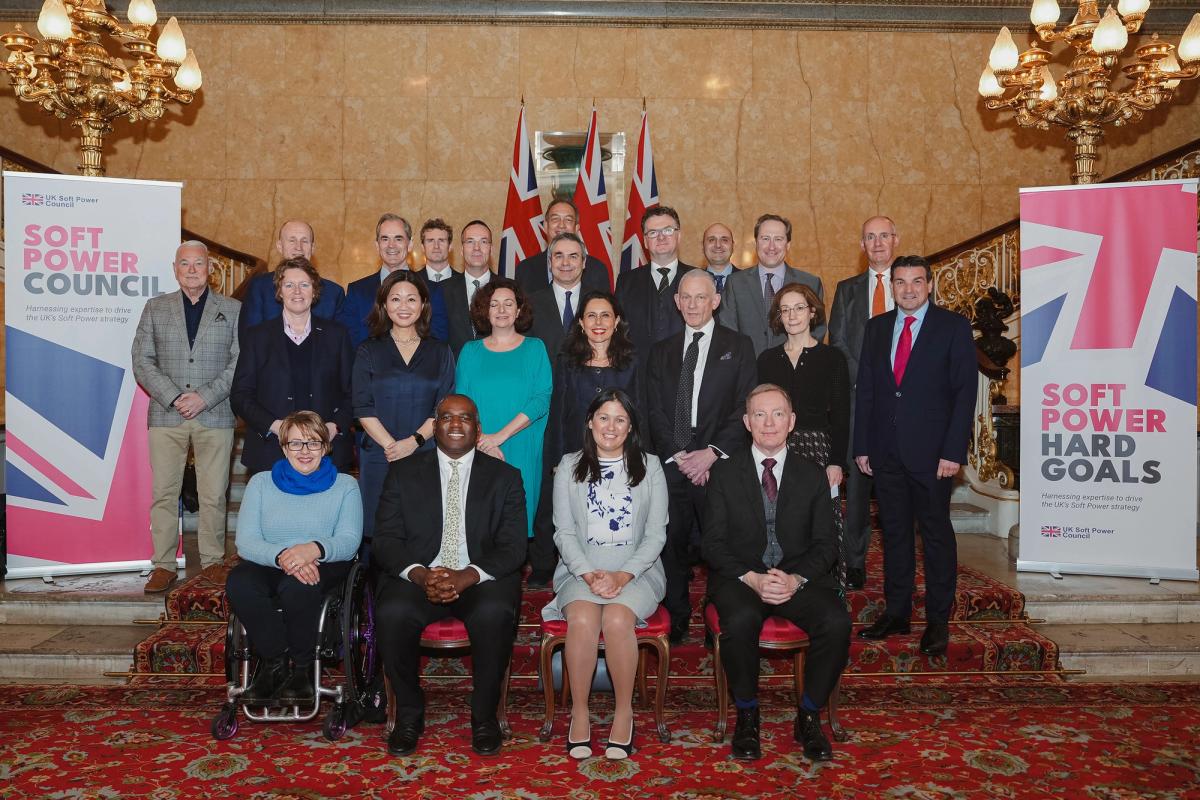The UK government has set up a Soft Power Council in a bid to boost Britain globally and drive economic growth. Tristram Hunt, the director of the Victoria and Albert Museum, and Peter Bazalgette, the chair and pro-chancellor of the Royal College of Art in London, will sit on the new 26-member advisory council which, according to the government, brings together “soft power and foreign policy experts to champion a new, hard-nosed approach to soft power”.
Other council members include Ewan Venters, the former chief executive of the Artfarm hospitality group, and Roland Rudd, the chair of Tate’s board of trustees. The council is expected to meet four times per year to help develop a “forward plan for government campaigns that promote the UK image and offer to the world, drawing on the breadth of UK strengths, including diversity”.
David Lammy, the UK’s foreign secretary said in a statement: “Soft power is fundamental to the UK’s impact and reputation around the world. I am often struck by the enormous love and respect which our music, sport, education and institutions generate on every continent.”
However, an art world insider who preferred to remain anonymous told The Art Newspaper: “We really need to focus on the parlous state of the arts in this country. Soft power works indirectly and is hard to quantify. What, after all, are the strategic aims of ‘soft power’?” The insider also raised concerns about what they describe as a lack of diversity in the council’s membership.
Bazalgette tells The Art Newspaper: “With the rest of the world, particularly in relation to our nearest neighbours in Europe and with other political upheavals we've had in the last year or two, I think that Britain has had a slightly tarnished brand and it needs to restore it. It's one of the powers or strengths that we have; where we make cultural connections—you might call that soft power—hard trade follows and that's well documented.” Asked about the mix of members on the council, he said: “It's got people from all sorts of walks of life. Soft power is not just about arts and culture."
The UK government will further examine the country’s soft power potential via the Foreign Affairs Committee in Parliament, which is setting up an inquiry into how the UK’s approach to soft power complements the government’s wider foreign policy objectives. The committee will explore how the UK counters the soft power influence and narratives of major powers including China, India, Russia and Turkey.
The committee will also ask what role soft power plays in the UK’s role as a leading actor in conflict resolution. The deadline for the call for evidence is 3 March.
This soft power offensive coincides with the announcement of a £60m funding boost for creative industries from Lisa Nandy, the UK culture secretary, who addressed more than 250 cultural leaders at The Glasshouse International Centre for Music in Gateshead on 17 January.
Four UK cultural projects will receive funding as part of the new package including the National Glass Centre in Sunderland (£5m) and The Tropicana, a cultural venue in Weston-super-Mare (£2.7m).


